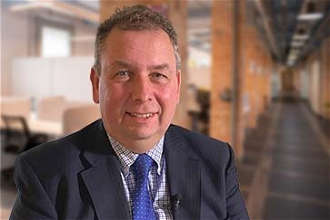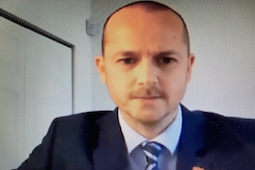Lords reject Assisted Dying Bill

Lord Falconer
Campaigners have welcomed the defeat of Lord Falconer's assisted suicide amendment last night.
The measure would have removed the threat of prosecution from those who go abroad to help an "assisted suicide". It was proposed by former Labour Lord Chancellor Lord Falconer who said there was a legal "no-man's land" that required clarity.
At least 115 people from the UK have gone to Swiss clinic Dignitas to die, but as yet no-one has been prosecuted.
In a free vote the Lords defeated the amendment to the Coroners and Justice Bill by 194 to 141.
Paul Tully, general secretary of SPUC, said: "This was a significant victory for the right to life. Time and again Parliament has blocked attempts to undermine the protective ban on assisted suicide. It's time for the Voluntary Euthanasia Society - now repackaged as Dignity in Dying – to drop its parliamentary campaign, a campaign which is offensive to very many people with live with, or care for those with, disability or terminal illness."
The Falconer amendment was opposed powerfully by Baroness Campbell, the disability rights advocate who has spinal muscular atrophy. In a moving speech, she argued that the amendment would send a signal of despair to the disabled and the terminally-ill. She said that the Falconer amendment would change the "traffic-signal" from red to green for ending the lives of disabled people. This would be a major change in the way our culture regards people who are disabled. She noted that no major disability organisation supported the amendment - only a minority of vocal disabled individuals supported the measure.
Baroness Finlay, a palliative care specialist, pointed to the inadequacies of the amendment's medical provisions. The second doctor's signature requirement was ineffective in protecting the patients of the serial-killer Dr Harold Shipman. Several hundred of their falsified death certificates were signed by other doctors without raising any serious questions.
Lord Carlile QC, in a passionate demolition of the detail of Falconer suicide amendment, argued that the amendment would create a slippery slope.
Lord Joffe claimed there was no slippery slope in Oregon, where assisted suicide is allowed.
Lord Neill of Bladen said that, if Lord Falconer's amendment was passed, it would be "inevitable that people will be pressured to signing up for death".
Baroness Kennedy QC, opposed the amendment. Although generally favouring personal choice, she argued that in the situation of offering assisted suicide to the terminally ill, the offer of choice would result in an erosion of choice.
The Bishop of Exeter, who has an adult daughter with Down's Syndrome, pointed out that the "compassionate liberalism" advocated by the proponents of the Falconer amendment might be empowering for people like the articulate and self-assured members of the House of Lords. But for people who were less able to assert themselves - and many who are disabled are sometimes heavily dependent on others for assistance in making decisions - such empowerment is illusory or worse. Disabled people may internalise the notion that others know best, leaving them severely disadvantaged by such so-called choices.
Lord Walton of Detchant, an eminent physician, described Ludwig Minelli, the director of Dignitas Swiss suicide centre, as "something of a fanatic"
He added that palliative care in The Netherlands, where euthanasia is legal, was in decline.
Lord (William) Waldegrave said allowing assisted suicide could lead to discriminatory healthcare rationing.
The Care Not Killing Alliance, an umbrella group of doctors and organisations opposed to changing the law, labelled the amendment "dangerous". They argued it runs the risk of vulnerable people being pushed into going to clinics like Dignitas against their will.
Source: ICN/SPUC





















